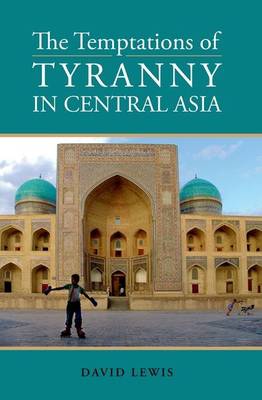
Bedankt voor het vertrouwen het afgelopen jaar! Om jou te bedanken bieden we GRATIS verzending (in België) aan op alles gedurende de hele maand januari.
- Afhalen na 1 uur in een winkel met voorraad
- In januari gratis thuislevering in België
- Ruim aanbod met 7 miljoen producten
Bedankt voor het vertrouwen het afgelopen jaar! Om jou te bedanken bieden we GRATIS verzending (in België) aan op alles gedurende de hele maand januari.
- Afhalen na 1 uur in een winkel met voorraad
- In januari gratis thuislevering in België
- Ruim aanbod met 7 miljoen producten
Zoeken
Omschrijving
After the toppling of the Taliban regime in Afghanistan the important but overlooked former Soviet states of Central Asia became for a brief time key players in the US-led war on terror. American and other Western military and economic aid poured in on the assumption that stability and greater democratisation would follow in its wake. But only a few years later the West's strategy to exert geopolitical influence in the region is in tatters. How did it all go so wrong? The Temptations of Tyranny in Central Asia explains why the US alliance with Uzbekistan failed to produce reform and instead ended with the massacre of hundreds of civilians in Andijan; it provides the first detailed account of the 2005 revolution in Kyrgyzstan; investigates the bizarre dictatorship in Turkmenistan that threatens to be the next North Korea; and examines the Islamic militant groups that threaten stability in the region. The book concludes with some of the lessons for Western policy in Central Asia, including the possibility of democratisation in the Islamic world; the myths and realities of Islamist militancy; the role of authoritarian states in inciting radicalism and violence; the conflict in US policy between security relationships and rhetorical commitments to democracy and human rights; and the developing rivalry between China, Russia and the US in the region.
Specificaties
Betrokkenen
- Auteur(s):
- Uitgeverij:
Inhoud
- Aantal bladzijden:
- 256
- Taal:
- Engels
Eigenschappen
- Productcode (EAN):
- 9780199326433
- Verschijningsdatum:
- 5/08/2008
- Uitvoering:
- Hardcover
- Formaat:
- Genaaid
- Afmetingen:
- 147 mm x 225 mm
- Gewicht:
- 439 g

Alleen bij Standaard Boekhandel
+ 107 punten op je klantenkaart van Standaard Boekhandel
Beoordelingen
We publiceren alleen reviews die voldoen aan de voorwaarden voor reviews. Bekijk onze voorwaarden voor reviews.









